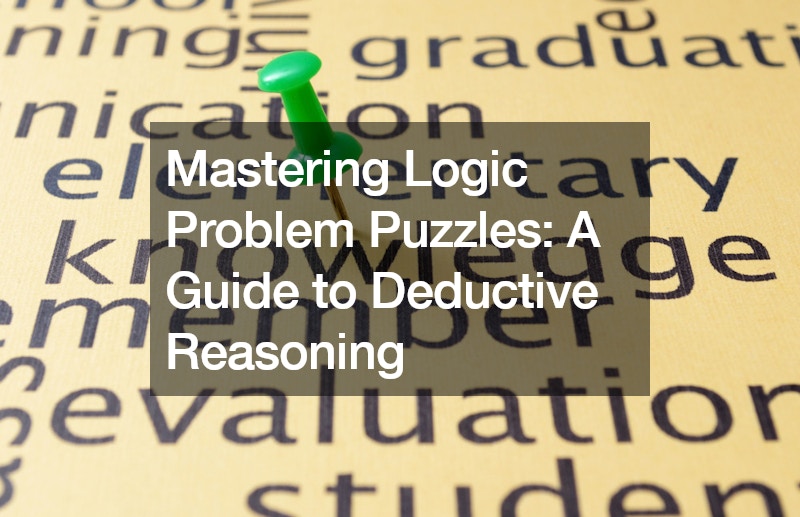Logic problem puzzles are a captivating way to exercise deductive reasoning and sharpen critical thinking skills. These puzzles typically involve a set of clues or conditions that must be analyzed to deduce the correct solution. By applying logical deductions, solvers can unravel complex scenarios and arrive at the correct answer.
When approaching a logic problem puzzle, it’s essential to carefully examine the given clues and extract relevant information. Each clue provides a piece of the puzzle, guiding solvers towards the correct solution. By systematically analyzing and combining clues, solvers can eliminate possibilities and narrow down potential answers.
One effective strategy for solving logic problem puzzles is to create a table or grid to organize information. This allows solvers to visualize relationships between elements and track deductions as they progress through the puzzle. By strategically filling in the table based on the given clues, solvers can gradually uncover the solution.
Deductive reasoning plays a central role in solving logic problem puzzles. Solvers must use logical inference to draw conclusions from the given information, eliminating contradictory possibilities and honing in on the correct answer. Through careful analysis and logical deduction, even the most challenging puzzles can be solved.
Engaging with logic problem puzzles regularly is an excellent way to exercise the mind and improve problem-solving skills. These puzzles offer a stimulating mental challenge and provide a sense of satisfaction when the correct solution is found. Whether tackling a puzzle alone or with friends, logic problem puzzles offer hours of entertainment and mental stimulation.
In conclusion, mastering logic problem puzzles requires careful analysis, deductive reasoning, and strategic thinking. By approaching puzzles systematically and employing logical deductions, solvers can unlock the secrets hidden within even the most perplexing scenarios.Logic problem puzzles are a captivating way to exercise deductive reasoning and sharpen critical thinking skills. These puzzles typically involve a set of clues or conditions that must be analyzed to deduce the correct solution. By applying logical deductions, solvers can unravel complex scenarios and arrive at the correct answer.
When approaching a logic problem puzzle, it’s essential to carefully examine the given clues and extract relevant information. Each clue provides a piece of the puzzle, guiding solvers towards the correct solution. By systematically analyzing and combining clues, solvers can eliminate possibilities and narrow down potential answers.
One effective strategy for solving logic problem puzzles is to create a table or grid to organize information. This allows solvers to visualize relationships between elements and track deductions as they progress through the puzzle. By strategically filling in the table based on the given clues, solvers can gradually uncover the solution.
Deductive reasoning plays a central role in solving logic problem puzzles. Solvers must use logical inference to draw conclusions from the given information, eliminating contradictory possibilities and honing in on the correct answer. Through careful analysis and logical deduction, even the most challenging puzzles can be solved.
Engaging with logic problem puzzles regularly is an excellent way to exercise the mind and improve problem-solving skills. These puzzles offer a stimulating mental challenge and provide a sense of satisfaction when the correct solution is found. Whether tackling a puzzle alone or with friends, logic problem puzzles offer hours of entertainment and mental stimulation.
In conclusion, mastering logic problem puzzles requires careful analysis, deductive reasoning, and strategic thinking. By approaching puzzles systematically and employing logical deductions, solvers can unlock the secrets hidden within even the most perplexing scenarios.
.
